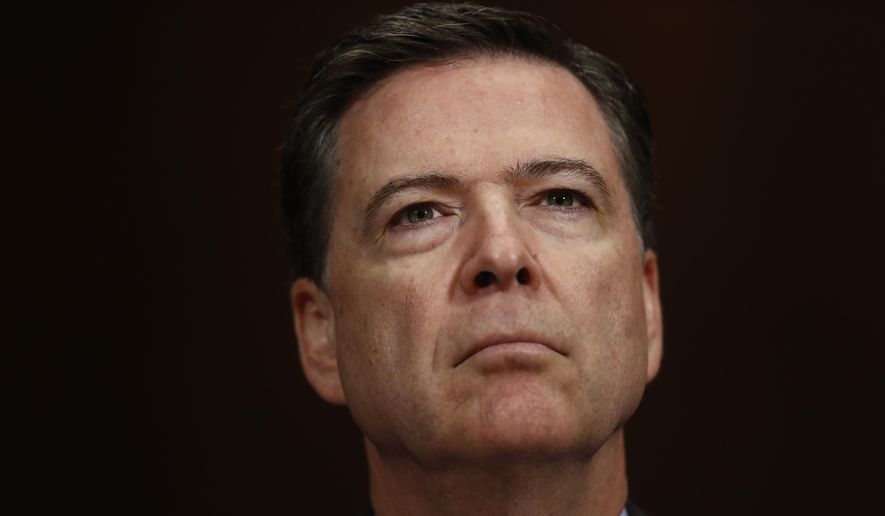Former FBI Director James B. Comey has agreed to testify in open session before a Senate panel investigating Russian interface in the presidential election, the committee announced Friday.
Mr. Comey, who was abruptly fired last week by President Trump, has become the focus of allegations that the president was interfering in the FBI probe of collusion with Russia.
His testimony before the Senate Intelligence Committee will be scheduled after the Memorial Day holiday, said Sen. Richard Burr, the committee chairman.
“The Committee looks forward to receiving testimony from the former Director on his role in the development of the Intelligence Community Assessment on Russian interference in the 2016 US elections, and I am hopeful that he will clarify for the American people recent events that have been broadly reported in the media,” said Mr. Burr, North Carolina Republican.
Sen. Mark Warner, the vice chairman of the committee, said Mr. Comey “deserves an opportunity to tell his story. Moreover, the American people deserve an opportunity to hear it.”
“I hope that former Director Comey’s testimony will help answer some of the questions that have arisen since Director Comey was so suddenly dismissed by the President,” said the Virginia Democrat. “I also expect that Director Comey will be able to shed light on issues critical to this Committee’s investigation of Russian interference in the 2016 election.”
The announcement closely followed a news report that Mr. Trump told Russian officials in an Oval Office meeting that he fired the “nut job” Mr. Comey and that it relieved “great pressure” put upon the White House.
Mr. Comey’s decision to appear rankled the Senate Judiciary Committee, whose earlier invitation to testify was declined by the ousted FBI director.
Senate Judiciary Committee Chairman Charles E. Gassley, Iowa Republican, and ranking member Sen. Dianne Feinstein, California Democrat, issued a joint statement saying they were “extremely disappointed.”
“There is no reason he can’t testify before both the Intelligence and Judiciary Committees, particularly given that the Judiciary Committee is the FBI’s primary oversight committee with broad jurisdiction over federal law enforcement, FISA and the nomination of the next FBI director,” they said. “Given his commitment to the people and the mission of the FBI, we expected him to be responsive to the senators responsible for vetting its next proposed leader. He should reconsider his decision.”
• S.A. Miller can be reached at smiller@washingtontimes.com.




Please read our comment policy before commenting.